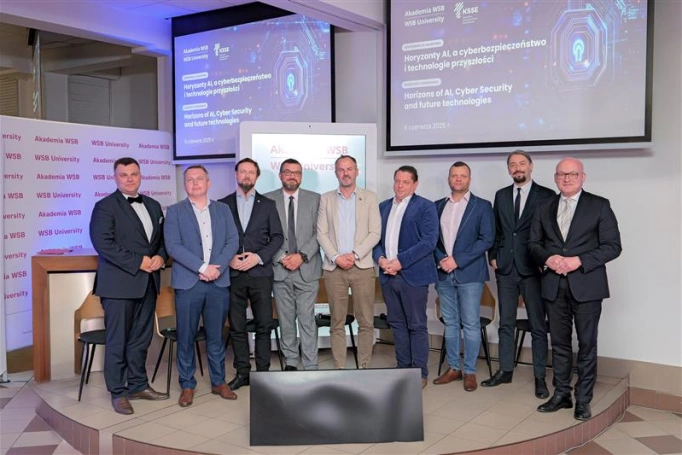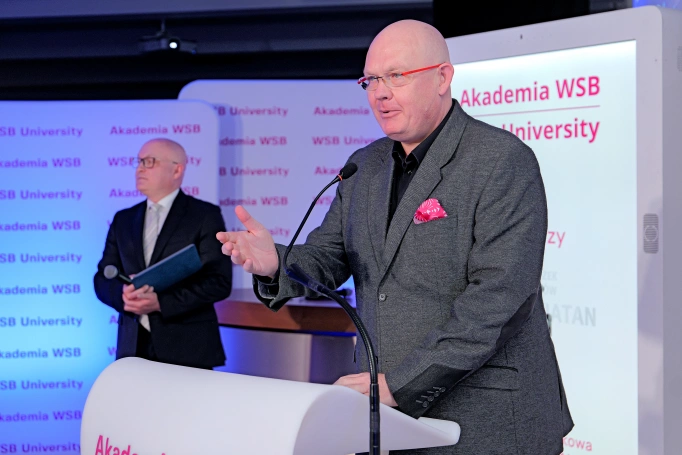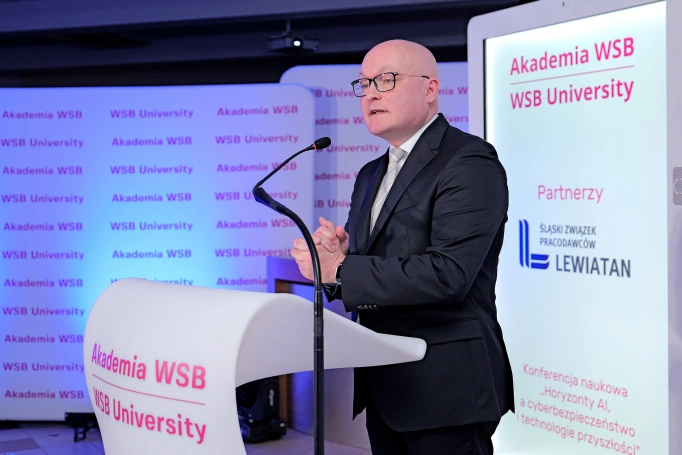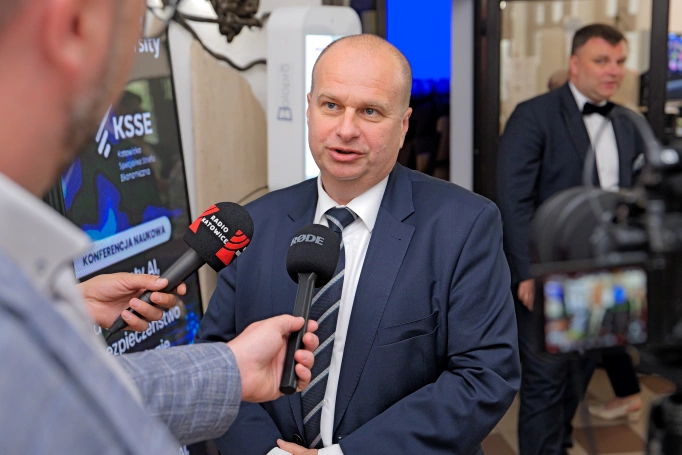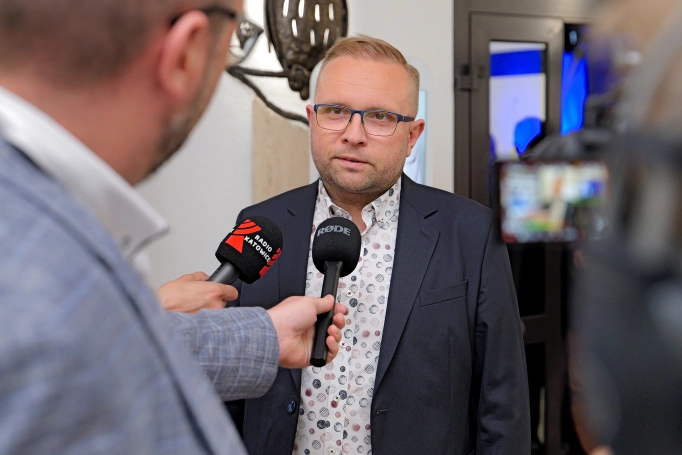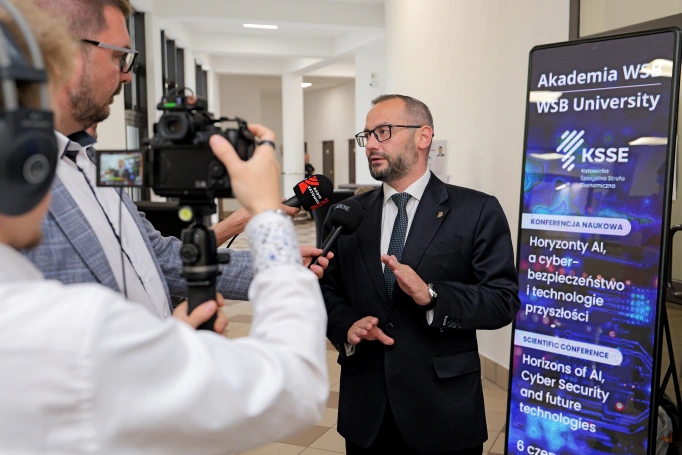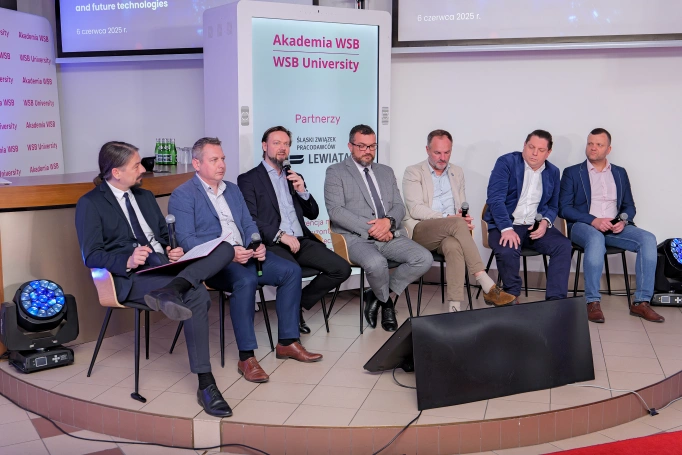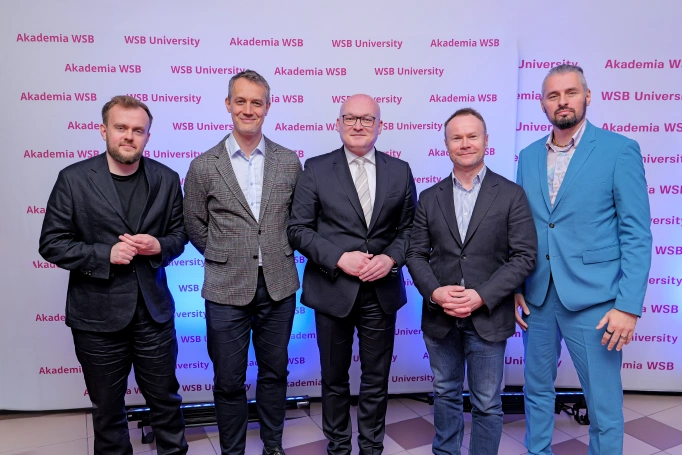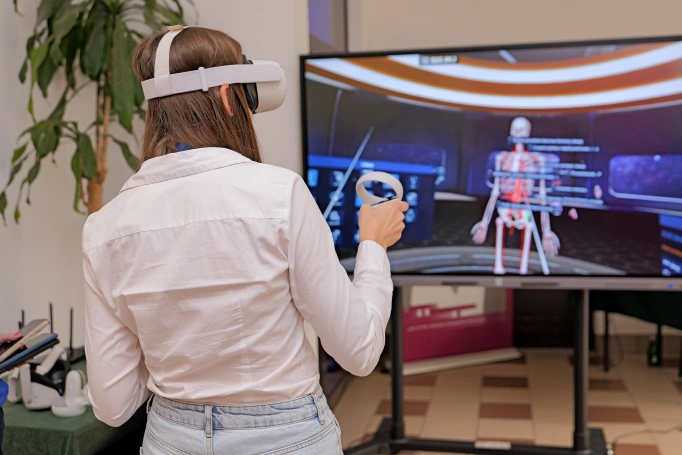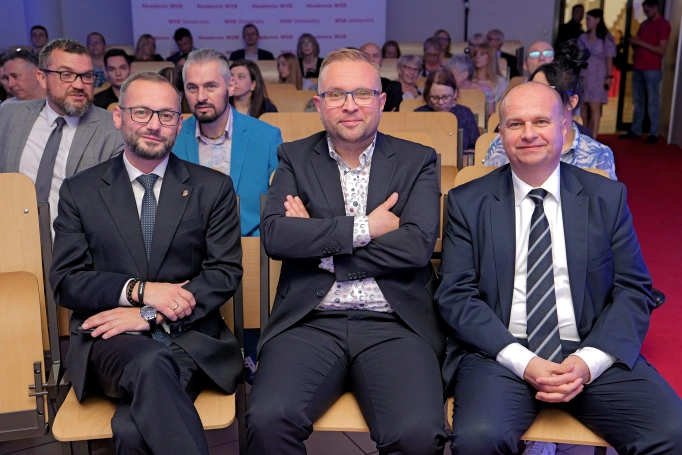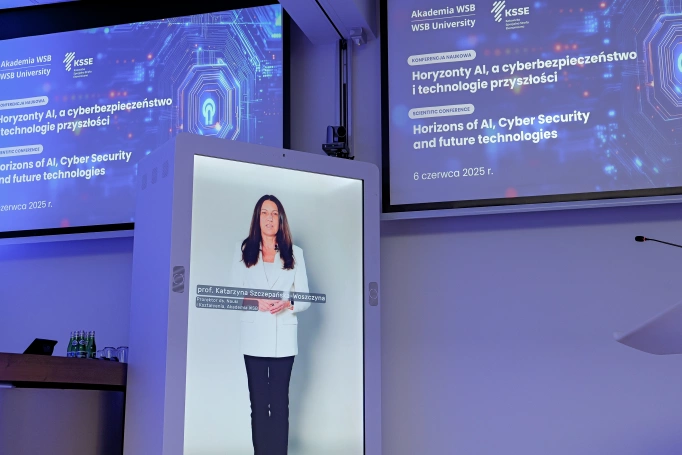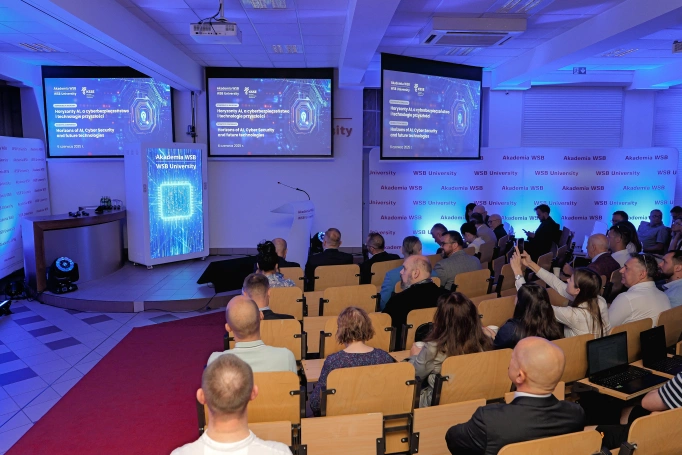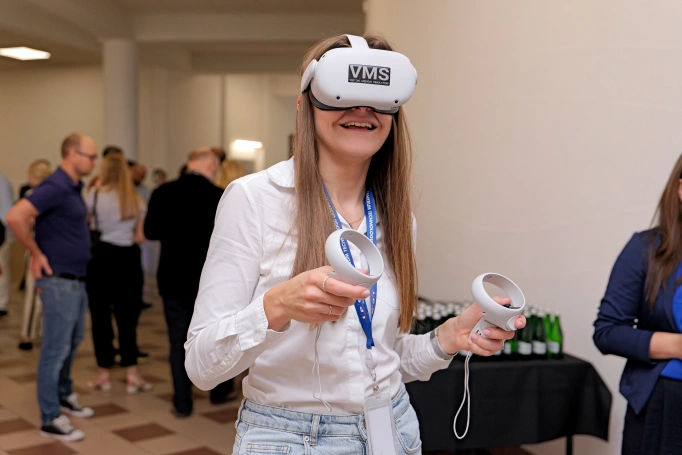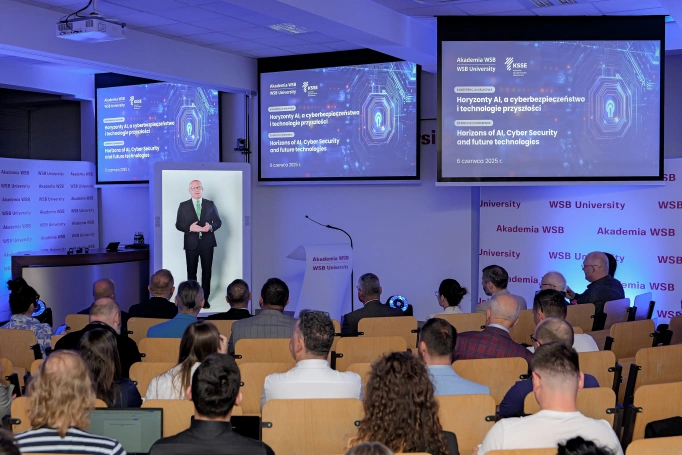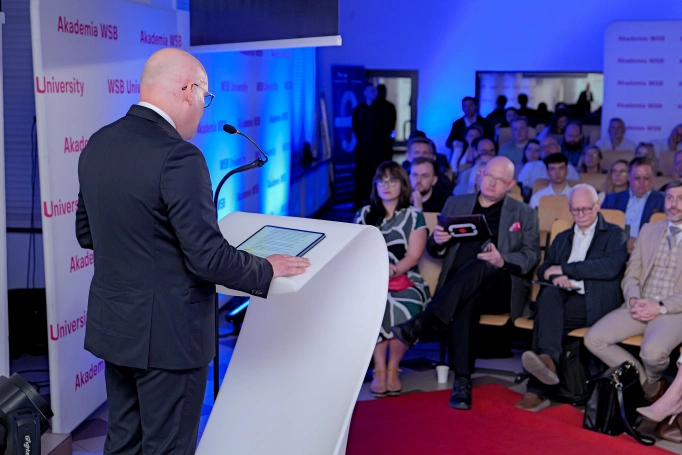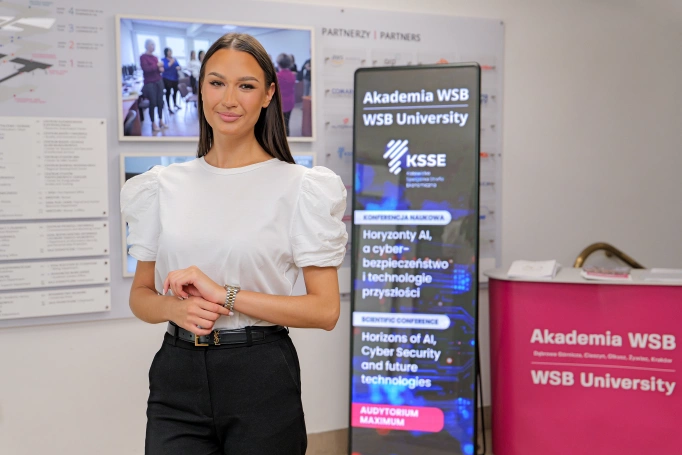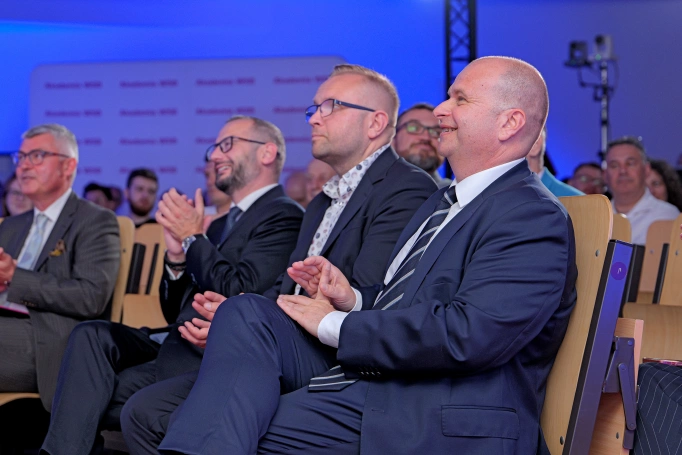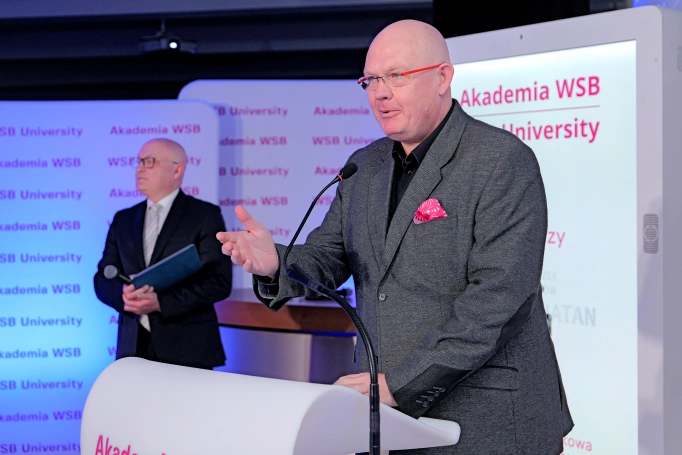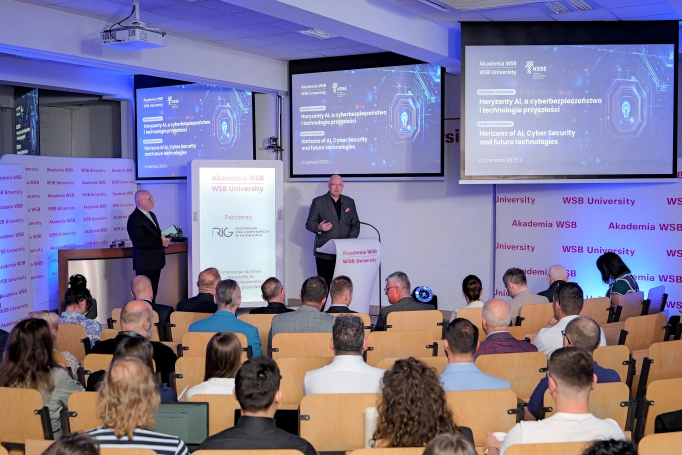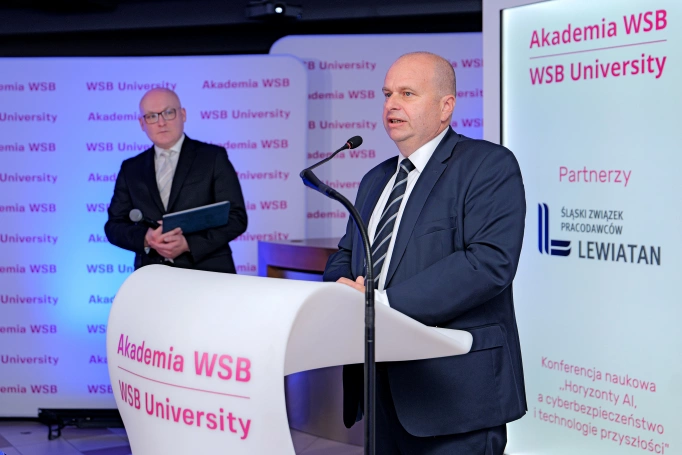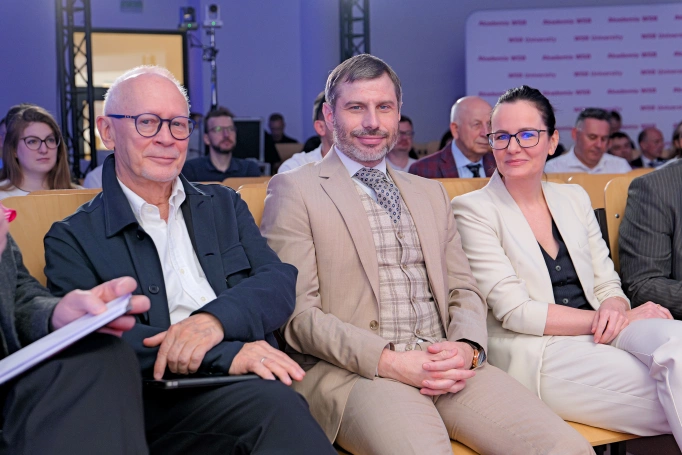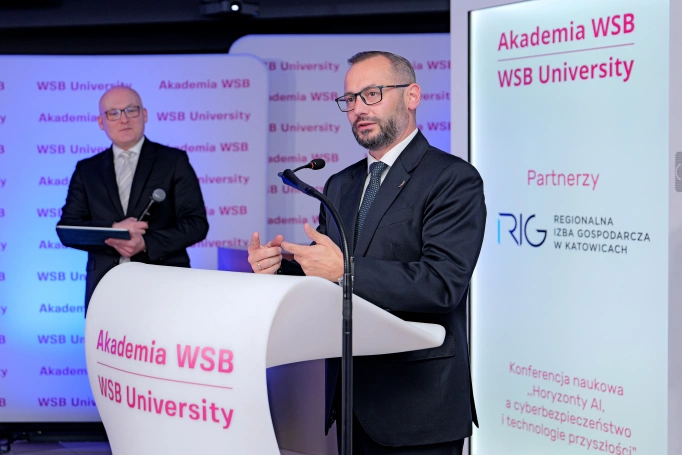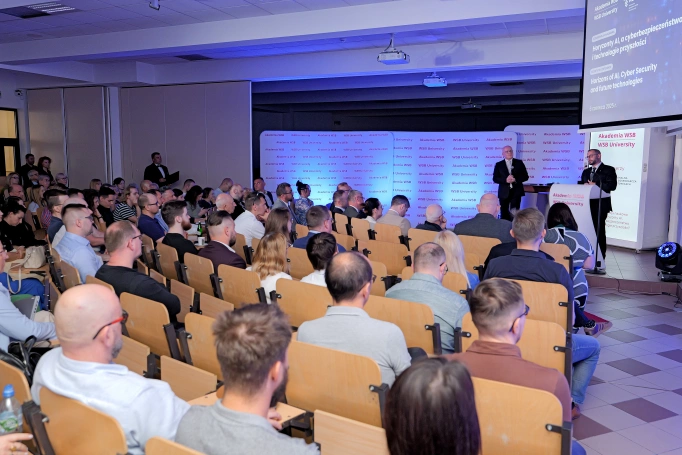- Student
- Student
- News
- Business School
- Doctoral School
- International Dean’s Office
- International Cooperation Office
- Academic Career Office
- Academic Sports Association
- Library
- Student Groups
- Internships
- Electronic Examination Center
- Scholarship office
- Finance Department
- Your Stay in Poland
- Academic Schedule
- The Centre for People with Special Needs
- Alumni and Students Association
- Personal Student Profile
- Support Zone
- Virtual University
- Contact
- Individual Study Plan
- Admissions
- Admissions
- Research
- University
- Erasmus+
Otwórz/zamknij menu dostępności przy pomocy klawisza Enter
Conference on Artificial Intelligence and Cybersecurity



Artificial Intelligence, a True Revolution. AWSB Expands AI Horizons
For several hours, Akademia WSB became the European center of cybersecurity. The conference "AI Horizons, Cybersecurity, and Future Technologies" attracted top experts from academia, business, and government, providing an opportunity for dialogue about the role of artificial intelligence, digital threats, and challenges the coming decade will bring.
Prof. Marcin Lis, Vice-Rector for Student Affairs and External Cooperation at AWSB, emphasized the importance of the university’s digital development paths:
"One of AWSB’s strategic goals, even a strategic direction, is the digitalization of higher education institutions, so I believe this is the best group for discussion in this area."
Michał Gramatyka, Secretary of State at the Ministry of Digital Affairs, added that the conference organized by Akademia WSB "is the best forum to talk about what is truly important today — digitalization, how digital processes impact citizens’ lives, the extent to which they concern entrepreneurs, but above all what the future holds, what the future will be for our children, who increasingly use social media and become dependent on it. What will be the future of an economy that today is increasingly knowledge-based."
During the panel discussions and presentations, one message repeated like a refrain — education in artificial intelligence must become the foundation of the modern education system. Zbigniew Rymarczyk, Vice President of Comarch S.A., vividly compared AI to the digital skills that are now common. Today’s meeting “demonstrates that this topic is important and AI education is crucial. Just like a few years ago, applying for a job without computer skills, office applications, or email was unimaginable, now everyone should learn AI applications and AI itself.”
In a similar vein, Tomasz Zjawiony, President of the Regional Chamber of Commerce in Katowice, said, “I hope we will educate our citizens in a way that they will use artificial intelligence to unlock their potential.”
Applications of AI go far beyond everyday consumer use. Marek Zychla, President of the Silesian Employers’ Association Lewiatan, highlighted how technology is transforming medicine. “In medicine, it’s fantastic — we have robots working based on AI, learning; what used to be serious surgeries is now a short procedure thanks to technology. The benefits are enormous because health is something that affects all of us.”
However, admiration does not exclude concern. The rapid development of technology raises questions about ethics, law, and security. Mateusz Rykała, Vice President of the Katowice Special Economic Zone, stressed that we are witnessing an epochal change. “Like every major change in the history of civilization, the introduction of AI on a mass scale will be of great benefit to society. Concerns are natural; we fear what we do not know, we fear change, but all of this has already begun and is ongoing.”
There is also a worldwide discussion on how to systematically prevent AI-related threats, as noted by Michał Boni, the first Minister of Digital Affairs in Central and Eastern Europe. “When we talk about regulations, it’s not about blocking innovation senselessly, but there should be rules protecting humans from what AI might autonomously do.”
The conference at Akademia WSB is an example of how academic and business environments can jointly outline a roadmap for the development of technology in Poland.
